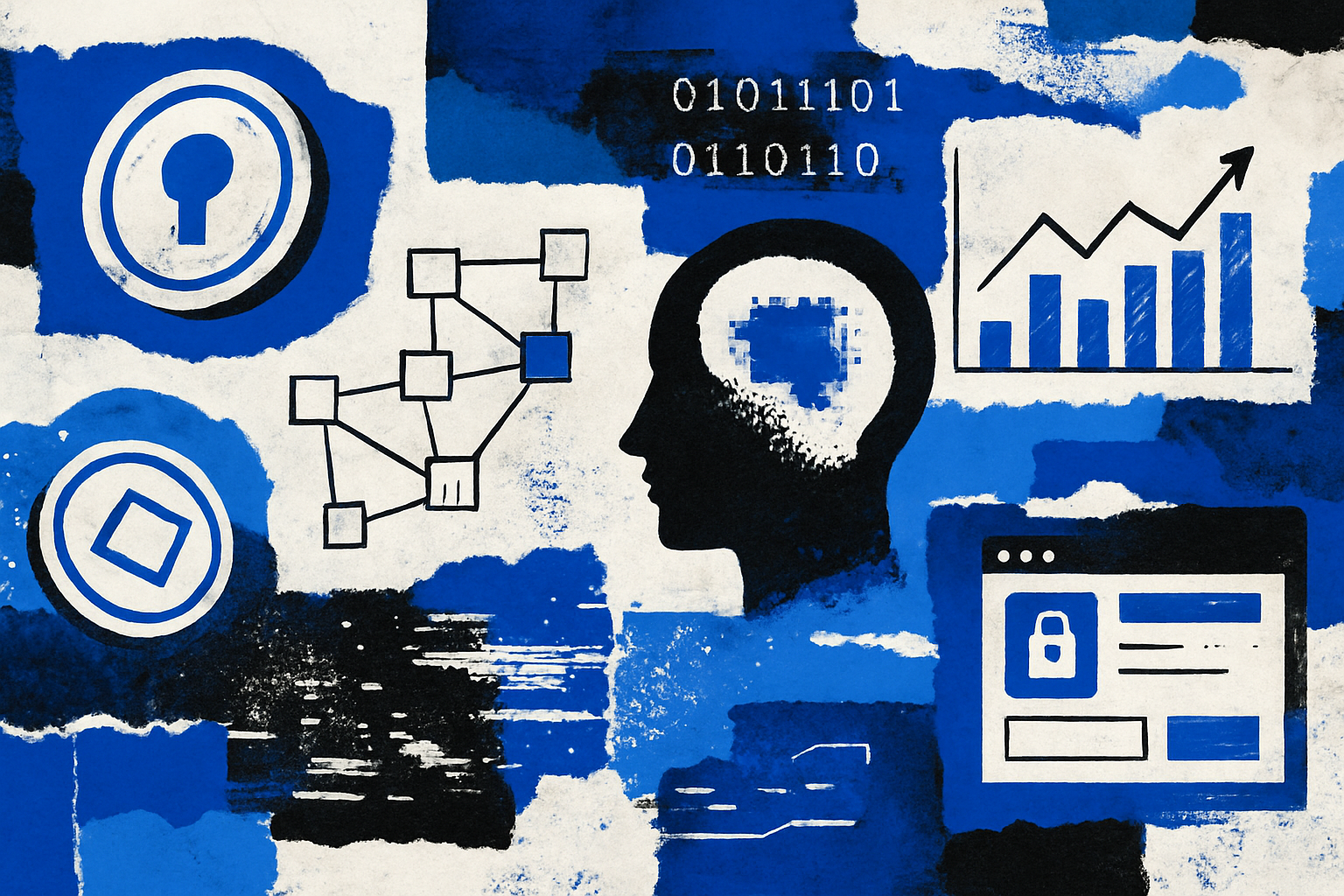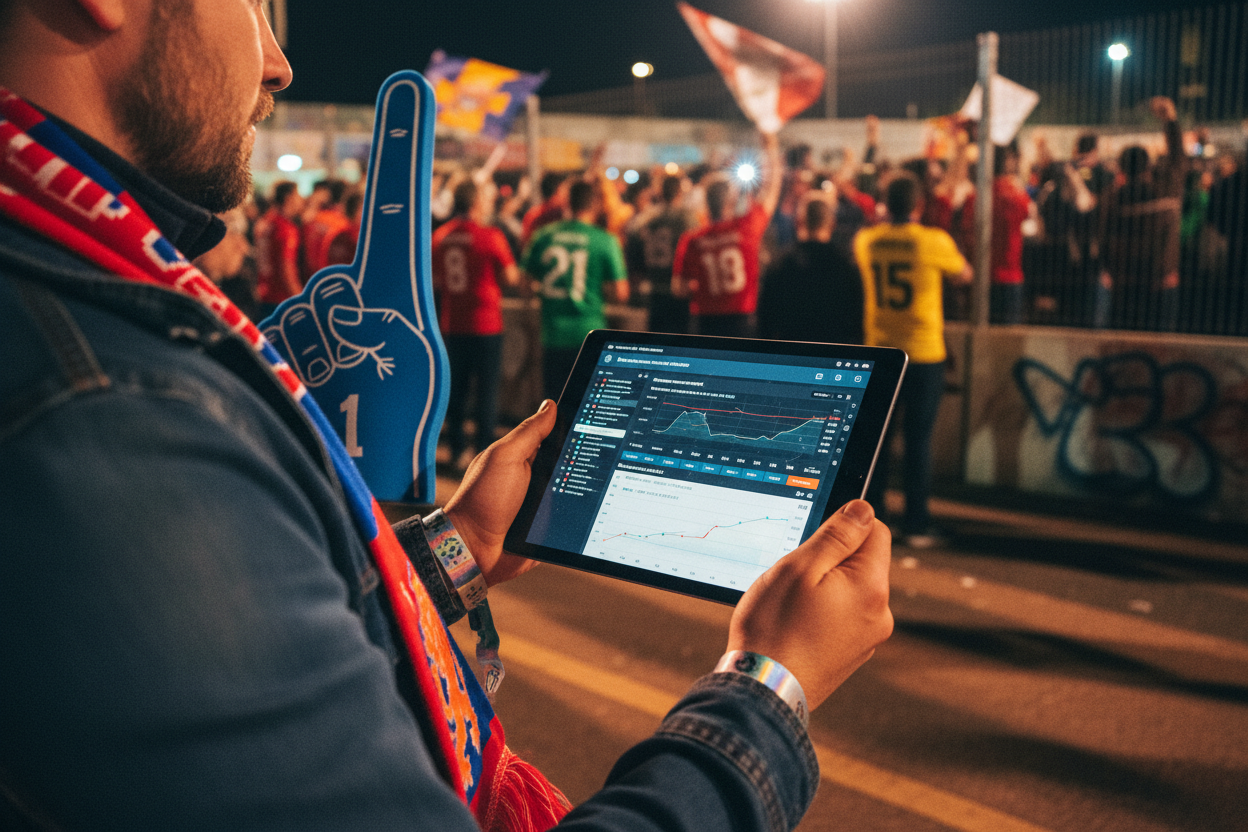
In 2024, blockchain-powered AI has fundamentally reshaped the landscape of sports betting predictions. The fusion of advanced machine learning models with decentralized ledger technology is not just a technological upgrade – it’s a seismic shift in how bettors, bookmakers, and platforms interact. This new paradigm delivers unparalleled predictive accuracy, transparency, and user-centric experiences, setting a new benchmark for the industry.

AI Supercharges Predictive Accuracy
Gone are the days of gut-based wagers and opaque odds. Today’s AI sports betting platforms ingest vast datasets: historical performance, player biometrics, weather, betting market sentiment, and real-time game feeds. Machine learning algorithms, especially deep neural networks, identify patterns and correlations that human analysts can’t see. The result? Sharper, data-driven predictions that consistently outperform traditional models.
For example, tools like BetIdeas and Sportsprediction. ai have seen explosive adoption in 2024, leveraging AI to provide bettors with edge-seeking insights across major sports. These platforms process millions of data points per match, updating projections as events unfold. This isn’t just hype: the accuracy gains are measurable, with some models boasting a 10-15% improvement over legacy prediction engines.
Blockchain Brings Trust and Transparency
While AI brings brains to the table, blockchain delivers trust. Every bet, odds adjustment, and payout is recorded on an immutable, decentralized ledger. This ensures that all transactions are verifiable and tamper-proof, eliminating concerns about manipulated odds or delayed settlements. Smart contracts now automate everything from bet placement to payout, guaranteeing that users receive winnings instantly and without dispute.
This transparency is more than a technical feature – it’s a market differentiator. As decentralized sports betting platforms proliferate, users are gravitating toward those that can prove fairness and integrity on-chain. In 2024, Polymarket alone processed over $8.4 billion in wagers, a testament to the trust that blockchain-backed prediction markets inspire.
The Rise of Decentralized Prediction Markets
Decentralized prediction markets are at the forefront of this transformation. Platforms like Billy Bets and others now allow users to place bets directly on-chain, cutting out intermediaries and reducing costs. Smart contracts handle everything – from matching bets to distributing winnings – in a trustless, automated fashion. This approach not only enhances transparency but also democratizes access, letting anyone participate in global markets without gatekeepers.
What’s more, these platforms are leveraging AI agents to automate betting strategies. Coinbase’s AgentKit, for instance, empowers users to deploy AI-driven agents that transact autonomously based on real-time analytics and user-defined parameters. This agentic approach is rapidly gaining traction, as bettors seek to capitalize on real-time market opportunities without manual intervention.
Real-Time Data and Personalized Betting Experiences
One of the most significant breakthroughs in 2024 is the integration of real-time data feeds with AI-powered analytics on blockchain-based platforms. Odds are now dynamically updated as games progress, reflecting every play, injury, or momentum shift. This creates a more engaging and responsive environment for bettors – one where information asymmetry is minimized.
Personalization is another frontier. By analyzing user behavior and preferences, AI systems tailor recommendations and betting options to each individual. The result: higher engagement rates and more satisfied users who feel empowered by data rather than overwhelmed by noise.
As these innovations accelerate, the traditional boundaries between bookmakers, bettors, and even sports leagues are blurring. Decentralized sports betting platforms are evolving into open ecosystems, where transparency and data integrity are non-negotiable. Users now demand, and receive, verifiable insights, provable fairness, and instant settlements, all powered by blockchain infrastructure.
Consider the impact on market liquidity and pricing. With smart contracts automating the back end and AI optimizing front-end prediction models, odds are sharper and markets more efficient. This means less slippage, tighter spreads, and a fairer playing field for all participants. For institutional players and retail bettors alike, the combination of AI sports betting predictions and decentralized ledgers is unlocking new strategies and opportunities previously unavailable in legacy environments.
Challenges and Future Outlook
Despite these advances, the sector faces challenges. Data privacy, regulatory uncertainty, and the potential for algorithmic biases remain concerns as adoption grows. Yet, the trendline is clear: blockchain-powered AI is setting a new industry standard. As more platforms integrate on-chain verification and agentic AI, expect further disruption of traditional sports betting models.
Looking ahead, the next wave of innovation will likely focus on interoperability, connecting prediction markets across blockchains and aggregating data from diverse sources. This could enable cross-market arbitrage, richer analytics, and even more robust transparent betting predictions. The rise of open-source protocols and decentralized governance will further cement user trust, as communities take a more active role in platform development and oversight.
Key Takeaways for Bettors and Builders
- Transparency is now table stakes: On-chain records and smart contracts have made opaque betting history.
- AI-powered edge: Bettors leveraging machine learning models consistently outperform those relying on intuition or static stats.
- Personalization drives engagement: Tailored recommendations based on user data create stickier platforms and better outcomes.
- Agentic automation: AI agents are taking over repetitive tasks, letting users focus on strategy.
- Decentralization democratizes access: Anyone with a crypto wallet can participate, no matter their location or bankroll size.
For those seeking deeper dives into the mechanics of on-chain verification or the future of agentic betting, explore our coverage on how blockchain makes AI sports betting predictions verifiable and transparent.
The convergence of AI and blockchain in sports betting isn’t just a trend, it’s a paradigm shift toward data-driven, trustless, and user-centric experiences. As we move into 2025 and beyond, expect this synergy to further redefine what’s possible for bettors, operators, and the broader sports ecosystem.






